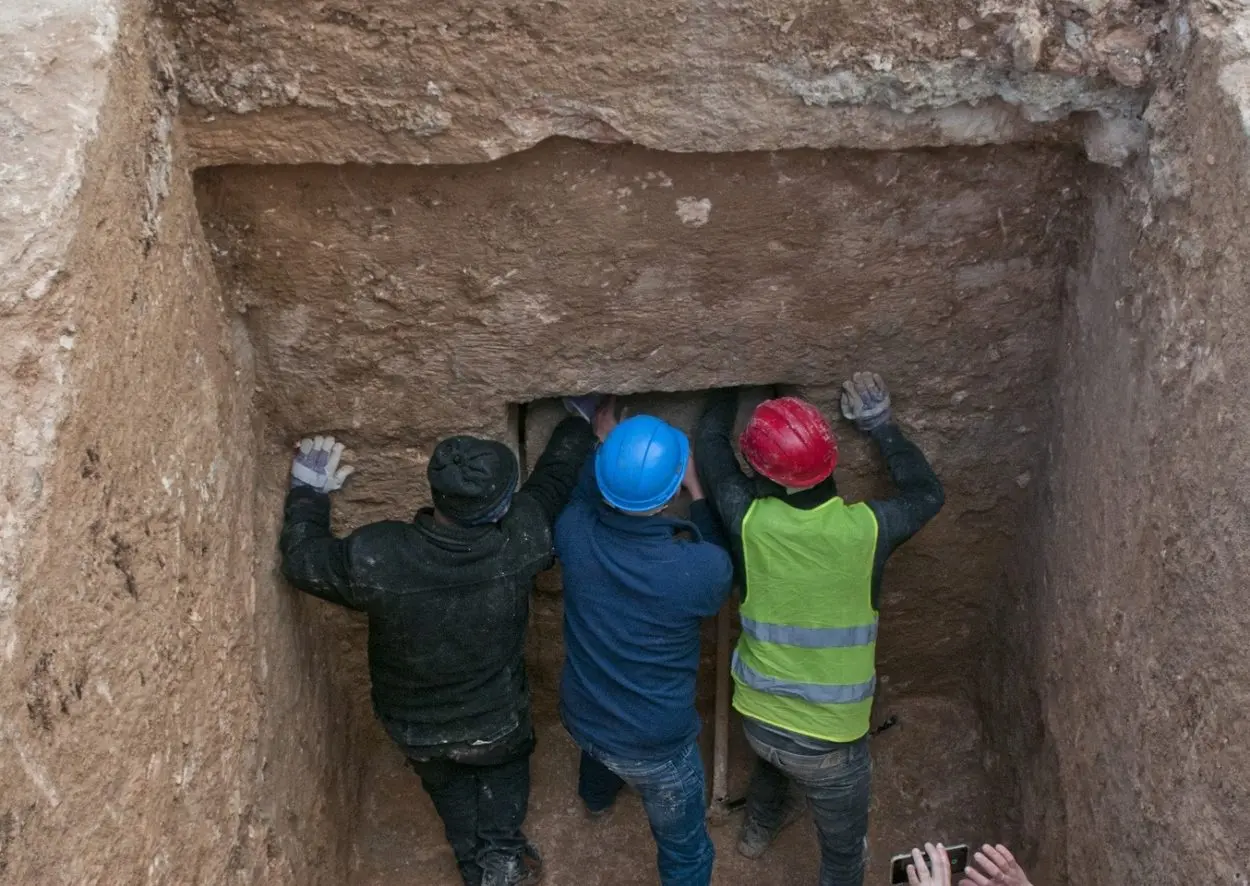Archaeologists have discovered a burial cave containing the tomb of a courtesan in the Via Hebron area of Jerusalem, Israel.
In a press announcement by the Israel Antiquities Authority (IAA), recent excavations have revealed the cremated remains of a young woman buried with a well-preserved folding box mirror from the late 4th century to early 3rd century BC.
According to the researchers, the discovery is the earliest evidence of a cremation burial in Israel from the Hellenistic period, with the woman likely being a companion/courtesan known as a hetaira who accompanied senior military personal or a Hellenistic government official during Alexander the Great’s campaigns or more likely during the Wars of the Diadochi (Wars of Alexander’s Successors).
Commenting on the box mirror, Liat Oz, who directed the excavations said: “This is the second mirror of this type discovered in Israel, and in total, only 63 example mirrors are known from around the Hellenistic world.”

Similar folding box mirrors have been documented in Hellenistic tombs and temples, usually found decorated with engravings or reliefs of idealised female figures and goddess figures – particularly that of Aphrodite, the goddess of love.
According to the press announcement: “Bronze mirrors like the one recently discovered were considered an expensive luxury item, and they could come into the possession of Greek women in two ways; as part of their dowry ahead of a wedding, or as a gift given by men to their hetairai. As such, the mirrors symbolized, among other things, the connection – as well as the intimate relations between the clients and the hetairai.”
The hetairai were integral to the Ancient Greek societal system, resembling Japanese geishas in some aspects. They offered companionship and social support, with a focus on more than just, or primarily, sexual services.
Some hetairai entered into common-law unions with the Greco-Hellenistic monarchs, as well as esteemed military leaders and renowned intellectuals. The hetairai hosted intellectual gatherings and inspired some of the most iconic sculptures and paintings, some of which have been found displayed in Ancient Greek temples.
Header Image Credit : Yoli Schwartz

